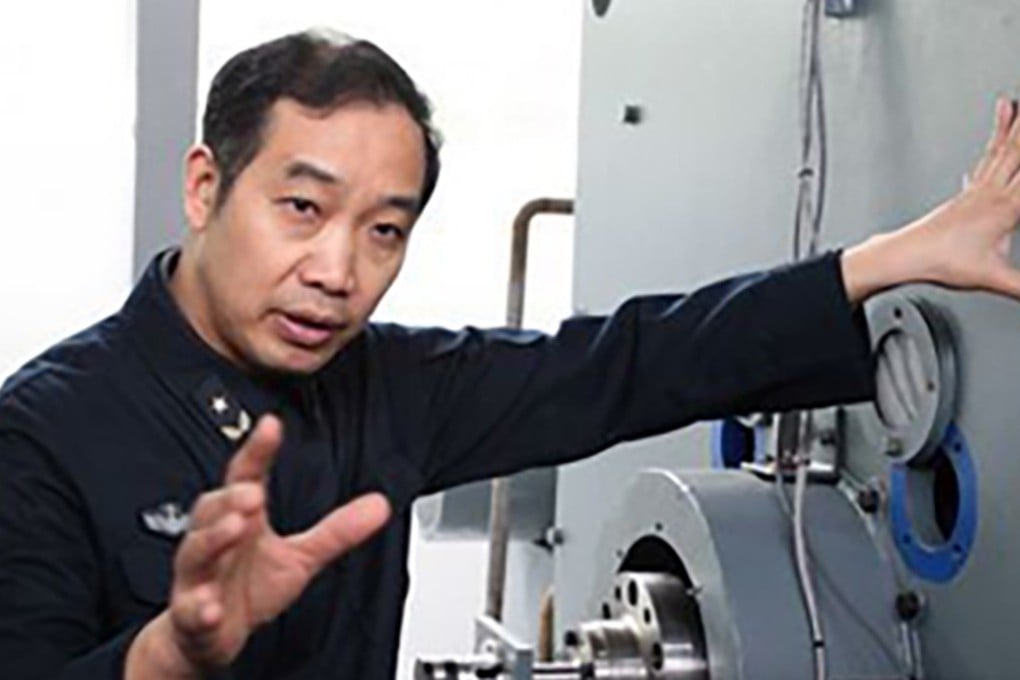The top engineer with the key to China’s dream of having the world’s most powerful navy
Almost every research topic Rear Admiral Ma Weiming has studied in recent years has resulted in actual equipment on Chinese warships, his colleague says

Top naval engineer Ma Weiming, who has led work on a hi-tech launch system for future Chinese aircraft carriers and a quieter propulsion system for China’s nuclear submarines, has been nominated for the People’s Liberation Army’s top military award.
Dubbed the father of China’s electromagnetic aircraft launch system (EMALS), Rear Admiral Ma describes himself as a “teacher without any dreams”.
He is one of 17 nominees for 10 Order of August 1 awards to be presented by President Xi Jinping on August 1, the 90th anniversary of the founding of the Red Army, the PLA’s precursor.
The other nominees, drawn from the ranks of the PLA, armed police force and public security forces, include Shenzhou XI commander Jing Haipeng, the only Chinese astronaut to venture into space three times.
The Order of August 1 was first presented by Communist Party leader Mao Zedong in 1955, with officers who fought in the anti-Japanese war, civil war and Korean war being recognised. But it went into abeyance after that and was only revived 60 years later, in 2015, with this year’s recipients to be the first of the new batch.
Ma, who hails from Yangzhou in Jiangsu, graduated from the PLA Naval University of Engineering in Wuhan, Hubei, in 1987 and elected to teach there. He earned a PhD in electrical engineering from Tsinghua University in 1996 and went on to become the country’s youngest engineering academician five years later.